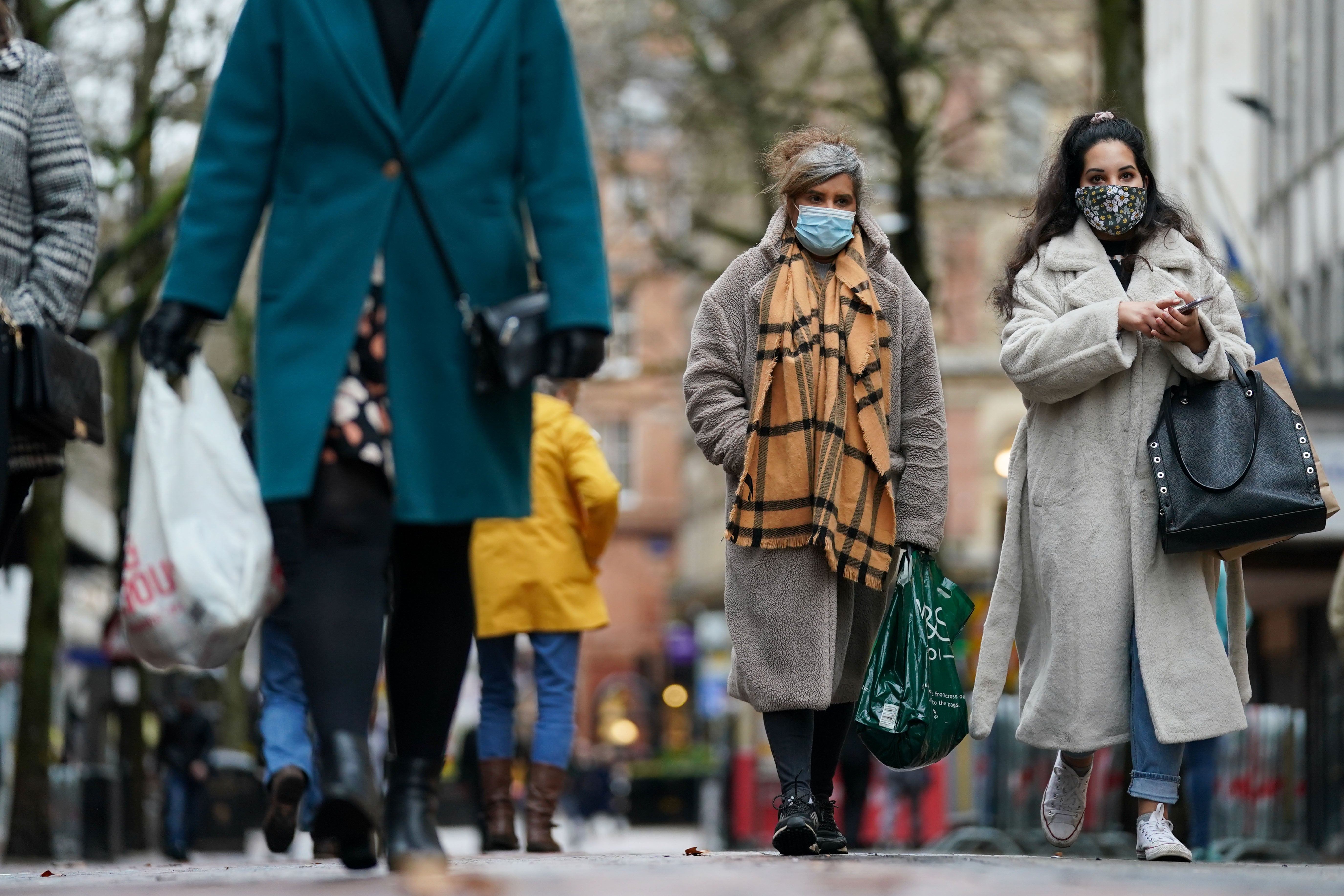Covid-19: What is happening amid a wave of Omicron cases across the UK?
England has the most relaxed rules in the UK.

Boris Johnson has suggested he is set to stick with Plan B measures in England amid increasing numbers of Covid cases, concerns over the return of schools and hospitals possibly becoming overwhelmed.
Other countries in the UK have tougher restrictions in place.
Here is a look at the current state of play regarding Covid-19:
– What do the numbers say?
More than 200,000 lab-confirmed daily Covid-19 cases were recorded in England and Scotland for the first time on Tuesday.
However, these figures contain some delayed reporting of cases because of the holiday period.
NHS England said a total of 15,044 people were in hospital with Covid-19 as of 8am on January 4, up 58% from a week earlier and the highest number since February 18.
In Northern Ireland New Year’s Eve saw a further 7,215 cases, a record daily total since the beginning of the pandemic.
Mr Johnson said during Tuesday’s Downing Street press conference that the latest record Covid case figures showed that those who believed the pandemic to be over were “profoundly wrong”.
– How are restrictions looking across the UK?
The Prime Minister said there is a “good chance” he will not impose fresh restrictions as he backed sticking with Plan B measures.
England has the most relaxed rules in the UK, with Covid passes for entry into nightclubs and other venues.
Face coverings are compulsory in most indoor public settings, as well as on public transport, and people have been told to work from home if they can, which is similar for the other countries.
Nightclubs have been shut in Scotland, Northern Ireland and Wales.
If a person in England, Wales or Northern Ireland has tested positive or has symptoms, they can stop self-isolating after seven days instead of 10 if they receive two negative lateral flow test results on days six and seven.
Nicola Sturgeon has been urged to cut the length of time in Scotland.
There are restrictions on the amount of people who can attend events in Wales, Northern Ireland and Scotland.
– What has been announced recently?
The Prime Minister has said now is the time for the “utmost caution”.
He announced that 100,000 “critical workers” including those in transport, policing and food distribution will get lateral flow tests on every working day starting on Monday.
Mr Johnson said the introduction of new restrictions “depends to be absolutely frank” on whether the strain first identified in South Africa behaves in a similar way to how it has there and “how quickly it blows through”.
– What is happening in schools?
Pupils are returning to the classroom after the Christmas break, with new advice for secondary school pupils in England to wear face masks in lessons due to a rise in coronavirus cases.
Secondary school and college students are also being encouraged to test on site before returning to class.
School leaders have told of their worries that staff shortages could worsen in the new term, with some reporting that around one in five staff members could be missing.
The Education Secretary said schools should be prepared to merge classes into large groups if staff levels dipped too low.
In Northern Ireland, Graham Gault, from the National Association of Head Teachers (NAHT), said that while teachers wanted schools to remain open, they had concerns over contact tracing as well as a staffing crisis.
The Scottish Government has urged secondary school pupils to take a lateral flow test before returning to school, while those aged 12 to 15 are urged to have their second coronavirus jab for which they are now eligible.
– How is the situation in hospitals?
England’s chief medical officer Professor Sir Chris Whitty said “the great majority” of those who were in intensive care had not been jabbed.
He acknowledged that “some hospitals, some areas of the country” will come under “very substantial pressure over the next couple of weeks” with high numbers of staff isolating.
The staffing situation in hospitals is said to be “almost impossible”, according to Matthew Taylor, the chief executive of the NHS Confederation representing health bodies, and that cases are rising across the UK.
Meanwhile, Chris Hopson, chief executive of NHS Providers, which represents health trusts, said at least “half a dozen” NHS hospitals have declared a critical incident as they try to respond to Covid.
Among those declaring critical incidents were Morecambe Bay NHS Trust and Blackpool Teaching Hospitals NHS Trust.
– What could be announced next?
The Government said it is continuing to follow the data over the spread of coronavirus and is listening to scientists and experts.
Plan B measures to tackle coronavirus are set to be officially reviewed when MPs return to Parliament on Wednesday for Prime Minister’s Questions, but given Mr Johnson’s message at Tuesday’s press conference it is unlikely any major measures will be imposed.
The First Minister of Scotland will address the Scottish Parliament on Wednesday to give an update on the situation with Covid-19.
Bookmark popover
Removed from bookmarks